With young farmers from every corner of Ireland in attendance, the Irish Farmers Journal took the opportunity to ask them for their views on the future of the agricultural industry.

“The Mercosur deal doesn't make any sense. Brazilian beef is coming in, we are not allowed to use hormones or anything in this country and that is OK for them. Where is it all going to end up? Is it down to the environment, injecting slurry and going like [the Netherlands]?
"From working at my own business and meeting farmers, it will be very hard for young farmers starting out in Ireland in the next few years. Brexit is a hidden horizon at the moment, it would be better off to be sealed up and done because it's holding back the beef industry for the past couple of months and it’s just going on and on - it needs to be finished with."

“The policies are what will prompt change for the tillage sector. There are a lot of changes coming in with regards to the sprays and chemicals. We are after losing the likes of Reglo for burning off and we have lost some other good herbicides over the past couple of years.
"The biggest challenge we see now is that you have to sow later and the weather is not cooperating. There could be an issue this year with crops not even getting into the ground, which will put pressure on spring-sown crops, which then puts a strain on the market for selling the product.
"It also has a knock-on effect for the beef and dairy industry because there is too much of certain grains in the country and you are importing grains that you need and it upsets the balance.
"Bigger farms are going monoculture and away from diversity, they are buying all their inputs off co-ops and there is very little trading going on between farms, which is putting an inflated cost on the price of inputs.
"A lot of tillage farmers are buying expensive organic manures such as chicken litter, when at the same time there are dairy farmers having trouble with nitrates who could actually benefit from exporting good-quality slurry to tillage farmers. A little bit more cooperation between farms could benefit the industry.”

“The future of the industry is not great - beef isn’t going great at the minute, dairy is going well but I can’t see it ending well.
"Organic farming is probably a good thing to get into. There is a lot of work in it but you get a better price for your produce.There are less sprays involved so it is probably better for the environment too.
"It’s harder for young farmers to get a start in the industry. Unless you are going on massive scale you are at nothing. I can’t see it ending well; every second lad getting into dairy - in the next couple of years they could be under pressure.”
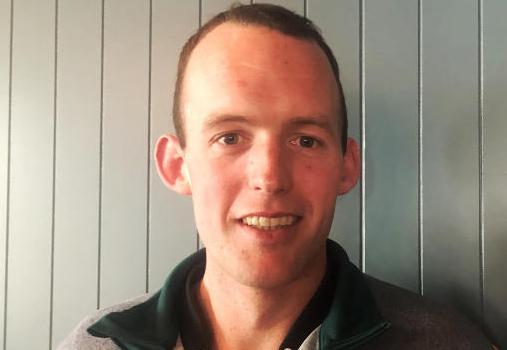
"I am a dairy farmer and I suppose the future of dairy farming is good. The price was low this year but the outlook for next year is good price-wise.
"The main issue coming down the line is the environmental side of things and animal welfare. From the bull calves point of view, this year was tough and I think next year is going to be tougher again. Are you going to have to hold on to the calves for five or six weeks until they are half reared or then try to sell them? That is an extra cost and extra housing.
"The CAP is reducing and falling away. It's bad that we are seeing a reduced income, though it's a positive where it is reducing other farmers' reliance. Hopefully there will be more land available to rent for young farmers.
"In Kerry, there isn’t a whole pile of new entrants into dairy farming. Glanbia are thinking about reducing the amount of new entrants allowed to come in [to its milk pool] because they may not be able to cope in the next couple of years with the supply. Is there going to be oversupply in the market? I can't see it.
"According to Jim Woulfe at the Macra conference, global population is rising and demand is going to be rising.
"With Brexit, there is no point in having sleepless nights over it; no one knows what Boris Johnson is going to do. If it's going to come, it's going to come - and we would rather see it done and know the future."
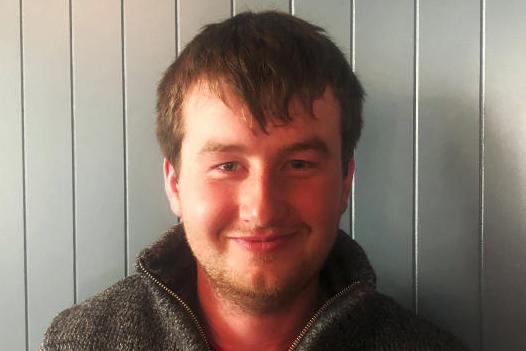
“We are dairy farmers in Co Clare and looking forward from a dairy farmer's perspective as supply has increased in Ireland.
"We are supplying to a global market and maintaining that global market is the most important thing. We also need to grow more niche markets and develop different products like our cheddar cheese markets and Kerrygold butter – they are so important.
"From a beef farmer's perspective, demand is low at the moment and there is a lot of oversupply. The price is down right across Europe as less people are eating beef.
"Labour is also an issue. There will always be staff there for farmers. We just need to retain them. You have to be able to manage staff and set up your farm in such a way that it is a staff-friendly environment.
"Where numbers are growing, you need to manage your workload better and be more organised."
Shane Fitzgeralad, Waterford
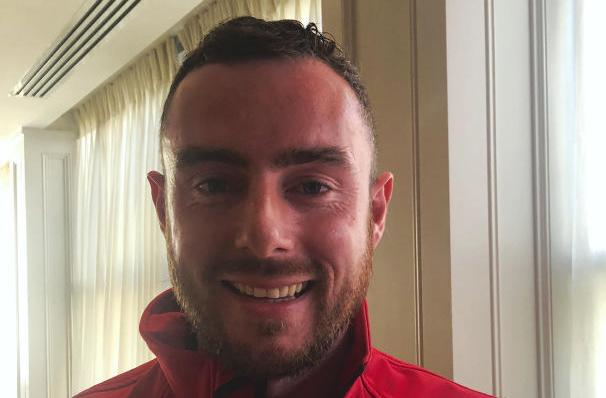
“I am a dairy farmer myself and I think the future is looking positive. However, for other sectors maybe things aren’t as positive – the last few years have been challenging. Even dairying going forward will be challenging, with all the environmental regulations that are coming on board.
"The beef sector is difficult, especially for suckler farmers. I think beef farmers working with dairy farmers to contract-rear is going to become more popular and they are going to have to be very efficient at what they do to survive.
"I think it is hard for young farmers who are starting from scratch. I suppose I am lucky because we have an established farm at home. My father was milking 100 cows traditionally and now we have doubled numbers. There is an income there for two people and we put a lot of investment in as well to expand the farm and its facilities.
"If you are starting from scratch it can be very difficult to get access to finance. New entrants coming from the beef sector and having to sell cattle in exchange for dairy cattle will find it tough as the price won’t be great. The future is going to be challenging for young farmers."
With young farmers from every corner of Ireland in attendance, the Irish Farmers Journal took the opportunity to ask them for their views on the future of the agricultural industry.

“The Mercosur deal doesn't make any sense. Brazilian beef is coming in, we are not allowed to use hormones or anything in this country and that is OK for them. Where is it all going to end up? Is it down to the environment, injecting slurry and going like [the Netherlands]?
"From working at my own business and meeting farmers, it will be very hard for young farmers starting out in Ireland in the next few years. Brexit is a hidden horizon at the moment, it would be better off to be sealed up and done because it's holding back the beef industry for the past couple of months and it’s just going on and on - it needs to be finished with."

“The policies are what will prompt change for the tillage sector. There are a lot of changes coming in with regards to the sprays and chemicals. We are after losing the likes of Reglo for burning off and we have lost some other good herbicides over the past couple of years.
"The biggest challenge we see now is that you have to sow later and the weather is not cooperating. There could be an issue this year with crops not even getting into the ground, which will put pressure on spring-sown crops, which then puts a strain on the market for selling the product.
"It also has a knock-on effect for the beef and dairy industry because there is too much of certain grains in the country and you are importing grains that you need and it upsets the balance.
"Bigger farms are going monoculture and away from diversity, they are buying all their inputs off co-ops and there is very little trading going on between farms, which is putting an inflated cost on the price of inputs.
"A lot of tillage farmers are buying expensive organic manures such as chicken litter, when at the same time there are dairy farmers having trouble with nitrates who could actually benefit from exporting good-quality slurry to tillage farmers. A little bit more cooperation between farms could benefit the industry.”

“The future of the industry is not great - beef isn’t going great at the minute, dairy is going well but I can’t see it ending well.
"Organic farming is probably a good thing to get into. There is a lot of work in it but you get a better price for your produce.There are less sprays involved so it is probably better for the environment too.
"It’s harder for young farmers to get a start in the industry. Unless you are going on massive scale you are at nothing. I can’t see it ending well; every second lad getting into dairy - in the next couple of years they could be under pressure.”

"I am a dairy farmer and I suppose the future of dairy farming is good. The price was low this year but the outlook for next year is good price-wise.
"The main issue coming down the line is the environmental side of things and animal welfare. From the bull calves point of view, this year was tough and I think next year is going to be tougher again. Are you going to have to hold on to the calves for five or six weeks until they are half reared or then try to sell them? That is an extra cost and extra housing.
"The CAP is reducing and falling away. It's bad that we are seeing a reduced income, though it's a positive where it is reducing other farmers' reliance. Hopefully there will be more land available to rent for young farmers.
"In Kerry, there isn’t a whole pile of new entrants into dairy farming. Glanbia are thinking about reducing the amount of new entrants allowed to come in [to its milk pool] because they may not be able to cope in the next couple of years with the supply. Is there going to be oversupply in the market? I can't see it.
"According to Jim Woulfe at the Macra conference, global population is rising and demand is going to be rising.
"With Brexit, there is no point in having sleepless nights over it; no one knows what Boris Johnson is going to do. If it's going to come, it's going to come - and we would rather see it done and know the future."

“We are dairy farmers in Co Clare and looking forward from a dairy farmer's perspective as supply has increased in Ireland.
"We are supplying to a global market and maintaining that global market is the most important thing. We also need to grow more niche markets and develop different products like our cheddar cheese markets and Kerrygold butter – they are so important.
"From a beef farmer's perspective, demand is low at the moment and there is a lot of oversupply. The price is down right across Europe as less people are eating beef.
"Labour is also an issue. There will always be staff there for farmers. We just need to retain them. You have to be able to manage staff and set up your farm in such a way that it is a staff-friendly environment.
"Where numbers are growing, you need to manage your workload better and be more organised."
Shane Fitzgeralad, Waterford

“I am a dairy farmer myself and I think the future is looking positive. However, for other sectors maybe things aren’t as positive – the last few years have been challenging. Even dairying going forward will be challenging, with all the environmental regulations that are coming on board.
"The beef sector is difficult, especially for suckler farmers. I think beef farmers working with dairy farmers to contract-rear is going to become more popular and they are going to have to be very efficient at what they do to survive.
"I think it is hard for young farmers who are starting from scratch. I suppose I am lucky because we have an established farm at home. My father was milking 100 cows traditionally and now we have doubled numbers. There is an income there for two people and we put a lot of investment in as well to expand the farm and its facilities.
"If you are starting from scratch it can be very difficult to get access to finance. New entrants coming from the beef sector and having to sell cattle in exchange for dairy cattle will find it tough as the price won’t be great. The future is going to be challenging for young farmers."










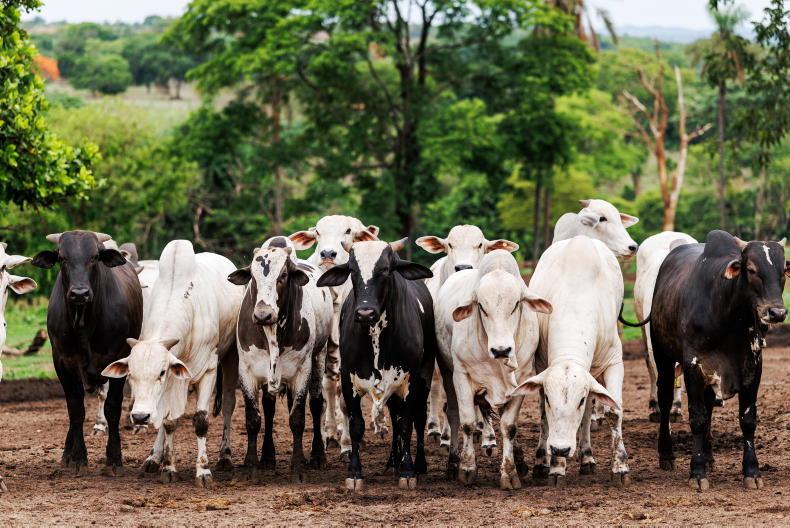

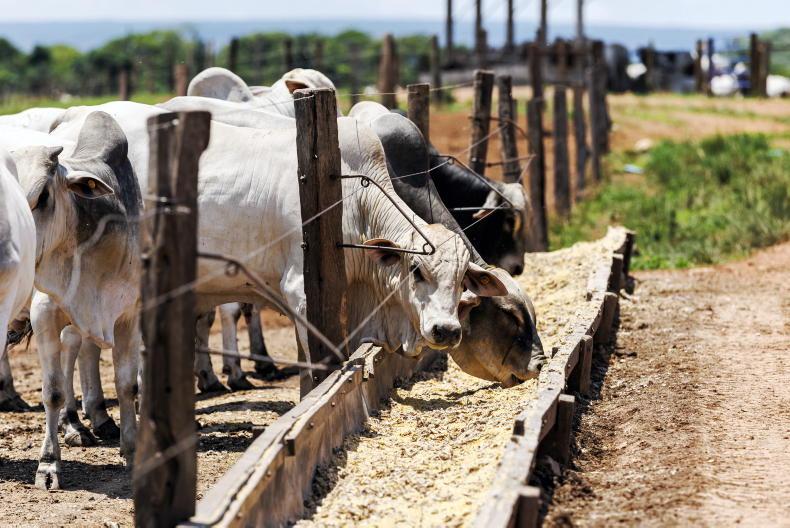


SHARING OPTIONS